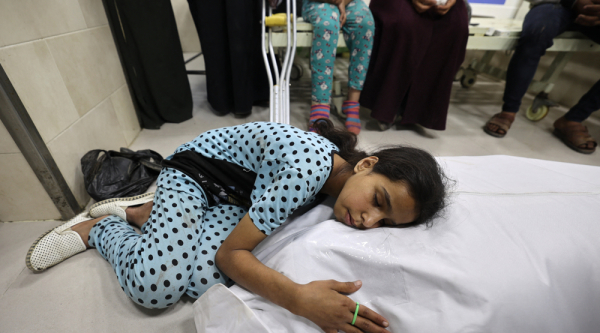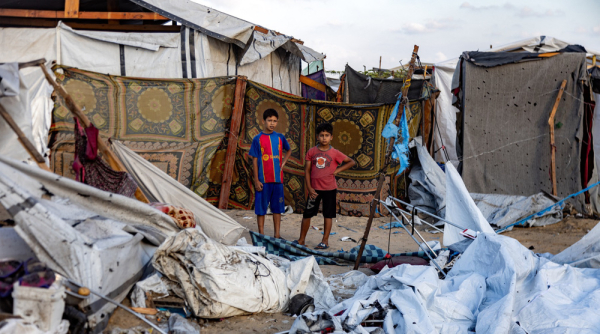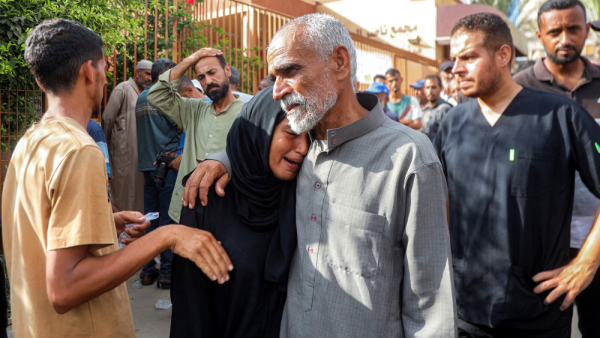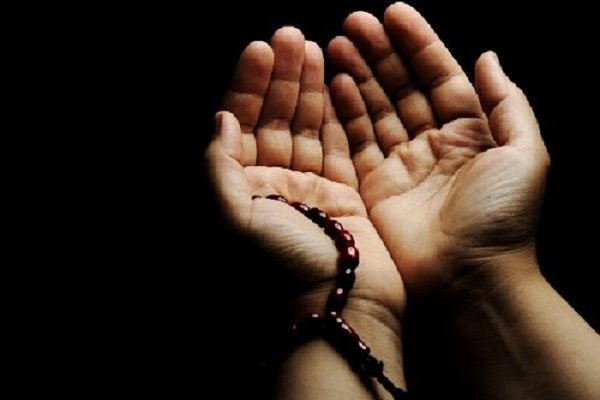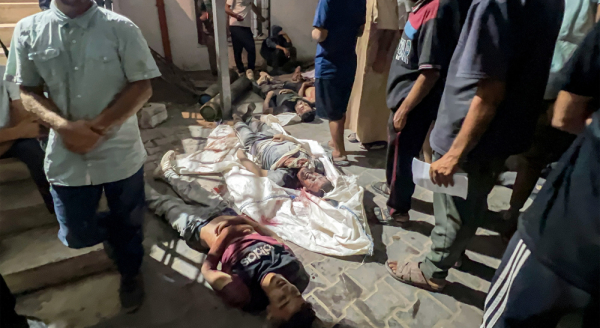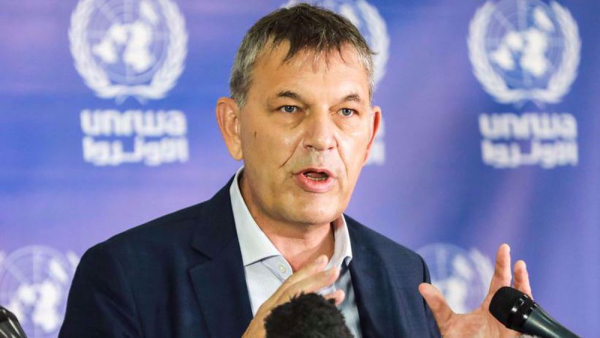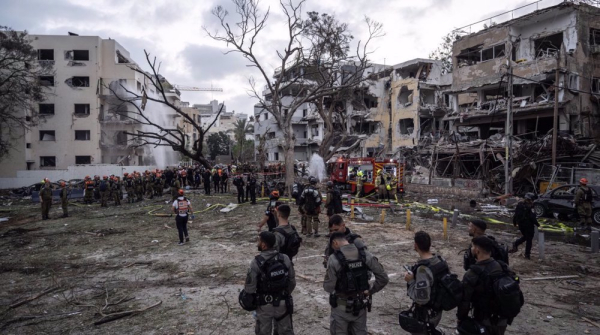zarezadeh
Iran says Israel’s Gaza occupation plot meant to complete genocide of Palestinians
Iran has denounced Israel’s recent decision to occupy Gaza City as part of a broader scheme by the usurping entity to “complete the genocide of Palestinians” and “erase the identity and existence of Palestine.”
In a statement released on Saturday, the Iranian Foreign Ministry said the new Israeli plan for Gaza breaches international law.
“This decision constitutes a grave violation of international law and a deliberate attempt to expand occupation and impose new realities across the occupied Palestinian territories by force and military aggression. Undoubtedly, the renewed displacement of Palestinians is categorically condemned,” it added.
Nearly two years into Israel’s genocidal war on the Gaza Strip, the Israeli security cabinet voted on Friday for the occupation plan, which means more bloodshed in Gaza and forcible displacement of exhausted and starving Palestinians.
It was initiated and pushed by Israeli Prime Minister Benjamin Netanyahu amid the brutal Gaza onslaught that has killed at least 61,369 Palestinians, mostly women and children, and injured 152,850 others since October 2023.
The Hamas resistance group called Israel’s expansionist plan a “war crime,” stressing that Palestinians would “resist any occupation or aggressive force.”
It also warned that Netanyahu is “sacrificing” Israeli captives to “serve his personal interests and extremist ideological agenda.”
Additionally, in its statement, the Iranian Foreign Ministry strongly condemned Israel's continued massacres and acts of genocide against Palestinians in the besieged Gaza Strip and the occupied West Bank, as well as the regime’s assaults on Islamic holy sites in the city of al-Quds.
It also underlined the need for an immediate cessation of Israeli attacks on Gaza, the unconditional delivery of humanitarian aid to the blockaded Palestinian territory, guaranteed freedom of action for relief organizations in carrying out humanitarian missions, support for regional and international efforts to achieve a full ceasefire, the withdrawal of occupying forces, a prisoners exchange, and the implementation of reconstruction plans.
It further noted that the international community bears responsibility to halt Israel’s genocide in Gaza and provide immediate assistance to the oppressed Palestinians.
Meanwhile, the ministry held Israel responsible for “heinous crimes and unprecedented humanitarian catastrophes” in Gaza, given the International Criminal Court (ICC)’s arrest warrants for the regime’s officials, and the International Court of Justice (ICJ)’s ruling that obliges Tel Aviv to prevent acts of genocide in the Gaza Strip.
“The international community, particularly the UN Security Council and other international legal and human rights bodies, are expected to fulfill their legal and moral obligations, to pave the way for prosecuting and punishing the Zionist criminals, and to end the regime’s long-standing impunity,” it said.
The ministry emphasized that the realization of the rights of the Palestinian people, most notably their fundamental right to self-determination and the establishment of an independent and unified Palestinian state with al-Quds as its capital, is both a legal and moral necessity.
It further reiterated the Islamic Republic's support for the Palestinian people’s right to complete liberation from occupation, apartheid, and colonialism, highlighting Tehran’s initiative for a referendum among the indigenous inhabitants of Palestine, including Muslims, Christians, and Jews, to determine their fate and the ruling political system.
Press TV’s website
Majority of Jews in occupied territories ‘untroubled’ by reports of famine in Gaza: Poll
A new opinion poll shows that a majority of Jews in the occupied territories are either "not so troubled" or "not troubled at all" by the reports of famine and suffering among the Palestinian population in the besieged Gaza Strip.
The results of the poll, conducted by the Viterbi Family Center for Public Opinion and Policy Research, published on Wednesday revealed that nearly 79 percent of Jews in the occupied territories are unconcerned about the humanitarian crisis in Gaza, highlighting a significant contrast in opinions between the Jewish and Arab communities regarding the war in the blockaded territory.
In contrast to the majority of Jews in the occupied territories, 86 percent of the Arab public indicated that they are "very troubled" or "somewhat troubled" by the situation in Gaza.
Additionally, the poll revealed a higher level of concern among left-wing Jews, with 70 percent expressing that they are troubled by the situation in Gaza.
The poll also found that Jewish and Arab perspectives greatly differ on whether Israel is making substantial efforts to avoid causing unnecessary suffering to Palestinians in Gaza.
According to the poll, 78 percent of Jewish respondents believed that Israel is making substantial efforts to avoid causing unnecessary suffering to Palestinians in Gaza, despite the ongoing war.
In contrast, only 22.5 percent of Arab respondents agreed with the claim that Israel is making substantial efforts to minimize unnecessary suffering.
On the other hand, 66.5 percent of the Arab respondents, and 15 percent of Jewish respondents expressed the belief that Israel could significantly reduce the suffering of Palestinians in Gaza but chooses not to, even with the restrictions imposed by the war. Additionally, 56 percent of left-wing Jews agreed with this claim.
Regarding the Israeli military's reporting on the extent of civilian casualties in Gaza, 70 percent of Jewish respondents said they "believe it to a very large or fairly large extent," while only 29.5 percent of Arabs expressed the same level of belief.
The survey was conducted online and by telephone at the end of July and involved interviews with 601 men and women over the age of 18 in Hebrew-language, as well as 152 in Arabic.
The latest poll comes amid growing international outrage over reports of widespread starvation in Gaza.
Israel launched a genocidal war on Gaza on October 7, 2023, after the Palestinian resistance movement Hamas waged the surprise Operation Al-Aqsa Flood against the occupying entity in response to the regime's decades-long campaign of death and devastation against Palestinians.
The Israeli regime has sealed all border crossings, blocking the entry of all aid and worsening the already dire humanitarian conditions in the territory since March 2, when it violated its ceasefire agreement with Hamas.
Experts have warned that without immediate action to ease restrictions and ensure access to aid, the humanitarian situation is likely to worsen and deepen the suffering of civilians caught in the crossfire.
Israel has rejected calls from the UN, aid agencies, and world leaders to allow more aid trucks into the besieged region to alleviate the crisis.
The regime’s bloody onslaught on Gaza has so far killed at least 60,939 Palestinians, mostly women and children.
Press TV’s website
70% of Palestinians in Gaza too weak from starvation to get aid: Report
Mourners gather at a funeral of victims killed in overnight Israeli bombardment on a camp sheltering displaced people in the Mawasi area of Khan Yunis on August 5, 2025. (Photo by AFP)
A new survey by the Danish Refugee Council (DRC) has found that 70% of Palestinians in Gaza are now too weak from starvation to even reach humanitarian aid, while the entire population shows alarming signs of psychological collapse under Israel’s ongoing genocide.
Released Monday, the report strongly condemns Israel's continued campaign of violence and deliberate deprivation in Gaza, warning that it has systematically dismantled the coping mechanisms of an already devastated population.
It documents the disturbing effects of the Israeli regime’s genocidal assault on Gaza’s civilian population, drawing from protection monitoring interviews conducted between May 22 and July 27, 2025. The data was collected at 25 displacement sites across Deir al-Balah, Khan Younis, Gaza City, and North Gaza.
“Based on protection monitoring interviews with people in Gaza from 22 May to 27 July 2025 in 25 displacement sites in Deir al-Balah, Khan Younis, Gaza City, and North Gaza, the survey exposes the life-threatening consequences of the American and Israeli-backed distribution scheme and the severe psychological toll on a population with no safe haven. Key findings from the survey show a population at breaking point,” the report said.
According to the survey, the majority of the enclave’s population is too exhausted by extreme hunger and is being systematically denied safe access to aid.
“Palestinians trying to access the militarized backed distribution scheme said they witnessed people, including family members, being deliberately targeted, shot, and killed by soldiers. Family members who died seeking aid were described as receiving ‘blood aid’, or ‘aid soaked in blood’,” the report added.
The survey also reveals staggering levels of forced displacement. On average, each person in Gaza has been displaced 9 times, with some individuals reporting up to 12 forced evacuations as safe zones repeatedly became targets.
“Meanwhile, basic services were very limited or non-existent at displacement sites; 46% reported receiving clean drinking water twice a week at their current locations, and 28% said they could get a hot meal from a communal kitchen just once a week,” the document revealed.
As a result of the famine and constant displacements, 33% of the population is experiencing mental health problems, including severe anxiety, depression, and suicidal tendencies.
“Palestinians in Gaza describe feelings of constant fear (33%), depression (31%), sleeplessness and nightmares (31%), and anxiety (26%). In 13% of cases, respondents described feelings of hopelessness and suicidal thoughts,” the report stated.
It called for an immediate end to the war and urged the international community to take decisive action to hold the Israeli regime accountable and protect civilians.
The DRC also demanded an urgent halt to the Israel–US-backed Gaza Humanitarian Foundation (GHF) program, citing its militarized and dangerous nature.
It called for safe, large-scale aid delivery through a principled, UN-led humanitarian response that restores access, dignity, and protection to Gaza’s besieged population.
Since the Israeli regime began its genocidal campaign on October 7, 2023, it has killed nearly 61,020 Palestinians and wounded 150,671, most of them women and children.
Press TV’s website
Iran, Malaysia urge Muslim nations to stop Israeli genocide in Gaza
Iranian President Masoud Pezeshkian has called on Muslim countries to leverage active diplomacy and diplomatic pressure to terminate the Israeli regime’s genocidal war against Palestinians in the besieged Gaza Strip.
Pezeshkian made the call in a phone conversation with Malaysian Prime Minister Anwar Ibrahim on Wednesday as the former underscored the necessity of collective efforts by Islamic countries to prevent Israeli atrocities in Gaza.
“The atrocities committed by the Zionist regime in Gaza are unacceptable to any free human being, and I hope that Islamic countries, through active diplomacy and diplomatic pressure, will prevent the continuation of these crimes and will respond to them with cohesion, unity, and responsibility,” the Iranian president said.
“The Islamic Republic of Iran has always defended the rights of the oppressed Palestinian nation, and other Islamic countries should adopt a stronger and more active stance in support of the oppressed people of Palestine and Gaza too,” he added. “Collective efforts will be very effective in confronting the crimes of the Zionist regime in Gaza.”
Pointing to the Israeli-imposed 12-day war on the Islamic Republic, Pezeshkian said, “We are blamed for defending the oppressed people of Palestine and their human rights, and we abhor the oppression and tyranny inflicted upon them; the arrogant powers of the world consider this wrong, and that is why they pressure us.”
Elsewhere in the conversation, Pezeshkian called for the development of cooperation and strengthening of interactions in all areas between the two countries.
Ibrahim, for his part, decried the occupying entity’s aggression against Palestinians, saying, “The Malaysian government has issued a strong statement against Israel's crimes in Gaza and is pursuing extensive diplomatic efforts to stop the genocide in Gaza. We hope that with the cooperation and assistance of other Islamic countries, we can stop these crimes.”
Underlining his government's special attention to cooperation with Iran, the Malaysian prime minister assured Pezeshkian of efforts to strengthen Kuala Lumpur-Tehran interactions, saying, “The government and people of Malaysia have special respect for the Islamic Republic of Iran.”
Ibrahim also welcomed Pezeshkian’s invitation to visit Iran and expressed readiness to travel to the Islamic Republic.
Backed by the US, the Israeli regime has been ravaging the besieged Gaza Strip since Operation al-Aqsa Flood on October 7, 2023, killing more than 60,000 Palestinians and wounding upwards of 150,000 others up to now. Most of the victims are women and children, as indiscriminate Israeli attacks target schools, mosques, and even tents that shelter displaced Palestinians.
Israel’s relentless bombardment campaign has devastated the territory and led to food shortages, famine, and acute starvation.
Press TV’s website
The Quran contains the complete plan for human life
الحکمة ۳۱۳
وقال عليه السلام : وَ فِي الْقرْآنِ نَبَأُ مَا قَبْلَكُمْ، وَ خَبَرُ مَا بَعْدَكُمْ، وَحُكْمُ مَا
saying 313
Imam Ali ibn Abu Talib (PBUH) said: The Quran contains news about the past foretelling about the future and commandments for the present.
To remove difficulties and increase sustenance
Question:
What dhikr or prayer should we do to remove problems and also to open and increase sustenance?
Hazrat Ayatollah Vahid Khorasani:
After the morning prayer, send salavat 14 times and then say 70 times Ya Fattah Ya Razzaq and then send salavat 14 times.
Prayer to remove problems and also increase sustenance
To hasten the answer to prayer, the removal of sorrow, and the untying of a person from a difficult situation
The Prophet (peace be upon him and his family):
Whoever wants his prayer to be answered and his sorrow to be removed, let him free a person from a difficult situation.
Nahj al-Fasaha: H2961
Israel kills nearly 90 Palestinians, including 71 seeking aid, in Gaza amid worsening starvation
At least 86 people, including 71 seeking humanitarian aid, have lost their lives in fresh Israeli attacks on the Gaza Strip as the regime pushes ahead with its genocidal war on the Palestinian territory despite international condemnations.
Citing medical sources, the Gaza Government Media Office said on Wednesday that 51 people were killed and more than 648 others wounded by Israeli forces as they were heading towards the Zikim crossing point for aid trucks entering northern Gaza.
Another 20 aid seekers were killed in Israeli attacks near the Morag corridor, the Nasser hospital in the southern city of Khan Yunis reported.
Meanwhile, 15 more people were killed in separate Israeli aerial assaults across Gaza. Palestinian photojournalist Ibrahim Mahmoud Hajjaj, 35, was among the victims in the occupying regime’s strikes on Gaza City.
The fresh Israeli attacks come as aid agencies and health officials have warned of a sharp rise in Gaza starvation, particularly among children and the elderly.
The Euro-Med Human Rights Monitor (Euro-Med) said approximately 1,200 elderly Palestinians have died in the Gaza Strip over the past two months due to Israel’s starvation policy, malnutrition, and lack of medical care.
“The actual death toll may be significantly higher,” it added, noting that hundreds of elderly people have been arriving each day at hospitals and primary care centers in states of extreme exhaustion, seeking nutritional fluids.
According to the UN, Gaza needs at least 500 to 600 aid trucks per day to cover its basic humanitarian needs. Yet, only 269 trucks have entered the besieged territory over the past four days.
The trickle of humanitarian assistance allowed into Gaza “does not reach the majority of the population,” said Adnan Abu Hasna, a spokesman for UNRWA, the United Nations agency for Palestinian refugees.
Israel unleashed its Gaza genocide on October 7, 2023, after the Hamas resistance group carried out its historic operation against the occupying entity in retaliation for the regime’s intensified atrocities against the Palestinian people.
The Tel Aviv regime has so far failed to achieve its declared objectives of eliminating Hamas and freeing all captives in Gaza, despite killing 60,138 Palestinians, mostly women, and children, and injuring 146,269 others.
A mass starvation is also gripping Gaza due to Israel’s blockade of the territory.
Press TV’s website
UNRWA chief slams failed Gaza aid ops, demands Israel reopen crossings
The Commissioner-General of the United Nations Relief and Works Agency for Palestine Refugees (UNRWA) has strongly criticized the failure of humanitarian operations to deliver food to starving civilians in the Gaza Strip. He called on the Israeli regime to reopen closed land crossings into Gaza to allow the unhindered passage of aid trucks.
As famine continues to claim lives across the besieged enclave, Philippe Lazzarini stated on Friday via a post on X (formerly Twitter) that UNRWA should be leading aid deliveries, given its capacity and long-standing experience in managing humanitarian relief operations efficiently.
In recent days, numerous airdrops have been carried out by the United Arab Emirates, Jordan, Egypt, and others in an attempt to ease the humanitarian catastrophe unfolding in the besieged strip.
"Airdrops are at least 100 times more costly than trucks. Trucks carry twice as much aid as planes," Lazzarini stated. "If there is political will to allow airdrops, which are highly costly, insufficient & inefficient, there should be similar political will to open the road crossings."
Lazzarini warned that the people of Gaza were starving to death and the "only way to respond to the famine is to flood Gaza with assistance."
He said UNRWA is the largest UN agency on the ground. “Today, UNRWA alone has the equivalent of 6,000 trucks of food and medical assistance stuck in Egypt and Jordan.”
Lazzarini reminded that the UN had been able to bring in 500 to 600 trucks a day during the brief ceasefire earlier this year.
He said under UN supervision, aid reached the entire population of Gaza in safety and dignity.
"It succeeded to reverse the deepening starvation without any aid diversion," the UNRWA chief stated.
Lazzarini insisted that there is no replacement to UNRWA. "No alternative to the UN-coordinated response with UNRWA as the backbone had provided similar results."
The UN official urged the US government and the Israeli regime to allow UNRWA to carry out its mission. "Let’s go back to what works and let us do our job."
"This is what people in Gaza need today more than ever, together with a lasting ceasefire," the Commissioner-General of the United Nations' agency concluded in his statement on Friday.
During the previous ceasefire, which began in January and was later broken by Israeli forces in March, UNRWA reported that it had successfully managed to “reverse the deepening hunger” in Gaza. But that fragile progress has since collapsed.
On March 2, 2025, the Israeli regime ordered the closure of Gaza’s main land crossings, cutting off all food, medical, and humanitarian supplies to the territory. According to reports by international human rights organizations, the move has exacerbated the humanitarian catastrophe for Gaza’s 2.3 million residents, many of whom are now surviving on grass, animal feed, or nothing at all. These groups have accused Israel of deliberately using starvation as a weapon of war against the Palestinian population.
Now, after more than 80 days of total blockade, and amid mounting international outrage, only limited aid has reportedly been delivered by the so-called Gaza Humanitarian Foundation (GHF), a controversial organization backed by the U.S. and Israel. Critics say GHF was established to bypass the UN’s longstanding and effective aid infrastructure in Gaza, and it has already been mired in accusations of corruption and politicized distribution.
The failure of the aid mechanism run by GHF to address mass starvation in Gaza has prompted UNRWA to describe it as a “flawed distribution system” violating humanitarian principles by restricting aid to south and central Gaza, requiring Palestinians to walk long distances to collect aid, and only providing limited aid, among other critiques.
The US-Israeli-crafted aid distribution points have been described as "mass death traps” and “slaughterhouses” for starving Gazans.
Every day, Palestinians are met with carnage in their attempts to receive supplies from the insufficient amount of aid trickling into Gaza,” Doctors Without Borders (MSF) said in a statement.
UN Secretary-General Antonio Guterres said that the US-backed aid distribution mechanism is “inherently unsafe” and “it is killing people.”
“Any operation that channels desperate civilians into militarized zones is inherently unsafe. It is killing people,” Guterres told reporters.
Guterres said UN-led humanitarian efforts are being “strangled,” aid workers themselves are starving and Israel, as the occupying power, is required to agree to and facilitate aid deliveries into and throughout the Palestinian enclave.
“People are being killed simply trying to feed themselves and their families. The search for food must never be a death sentence,” Guterres added.
The UN estimates that at least 1,373 Palestinians were killed as they tried to access food between May 27 and July 31, 2025.
US contractors said in an interview that they witnessed their colleagues using live fire, stun grenades and pepper spray against civilians during aid distribution inside the GHF sites.
Meanwhile, the overall death count resulting from starvation and malnutrition in Gaza has currently reached 155, including 89 children, and it is projected to escalate rapidly as the siege and the closure of crossings persist.
The World Food Programme (WFP), UNICEF, and the Food and Agriculture Organization (FAO) this week warned that "time was running out" and Gaza stood "on the brink of a full-scale famine."
Since the Israeli regime unleashed its brutal onslaught on Gaza in October 2023, more than 60,300 Palestinians have been killed, mostly women and children.
Press TV’s website
Iranians dealt strong blow to enemy during Israeli war: Official
The Iranian people have succeeded in dealing a heavy blow to the enemy during 12 days of the Israeli-US war of aggression, says a senior official in the office of Leader of the Islamic Revolution Ayatollah Seyyed Ali Khamenei.
Ali Saeedi, head of the Leader’s ideological-political office, on Friday hailed the Iranian people’s resistance and support for the Islamic establishment during the Israeli-imposed war in June.
He said the Israeli regime has made its utmost efforts to collapse the Islamic Republic over 15 years, pursuing its goals at the beginning of the war by assassinating the Iranian commanders.
However, he said, the Tel Aviv regime failed to achieve its objectives as the Leader’s guidelines, resistance of people and strong performance of the Armed Forces thwarted the adversarial plots.
During the Israeli-US acts of aggression, the Iranian Armed Forces responded strongly to the enemies under the guidelines of Ayatollah Khamenei, Saeedi said.
He warned that if the Israeli regime made another mistake, “we will not give them a chance…and we will solve humanity's fundamental problem by destroying the occupying regime of Quds."
The official also underscored the importance of increasing Iran’s intelligence, improving the national security system and protecting border areas.
Saeedi’s remarks came a day after Iran’s President Masoud Pezeshkian hailed the “honorable” and strong defense of the Iranian people, police, and security forces, as well as missile scientists, during the Israeli-US acts of aggression.
The president said no power will be able to bring the Iranian people to their knees, and no obstacle can hinder their progress as long as they maintain their unity and coherence.
On June 13, the Israeli regime launched its aggression targeting senior Iranian officials and nuclear scientists in an act of terrorism that killed scores of civilians as well. Days later, the United States escalated the war by bombing three civilian nuclear facilities in Iran.
In a powerful response, the Iranian Armed Forces launched retaliatory strikes on strategic Israeli targets across the occupied territories and also hit the al-Udeid air base in Qatar, the largest American military outpost in West Asia.
On June 24, Iran, through its successful retaliatory operations against both the Israeli regime and the US, managed to impose a halt to the illegal assault as Tel Aviv, overwhelmed by the counterstrikes, was compelled to seek a ceasefire.
Press TV’s website
